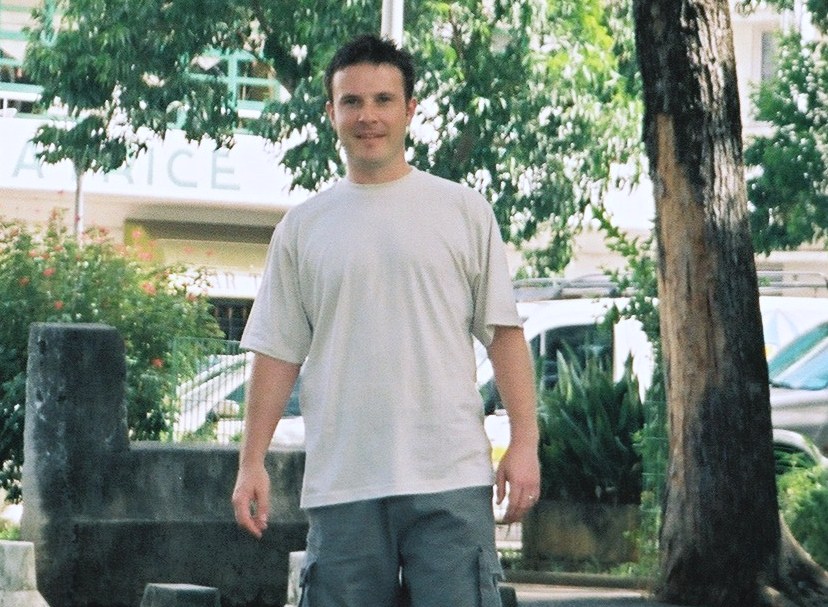ASK & DISCUSS
INDEXWhat does it cost to make a living in the film industry?
11 years, 5 months ago - Xenia Glen
Programmer-critic Miriam Bale tweeted some interesting data on how much it would cost to have a career in indie filmmaking, claiming that ‘It would take you 39 years to save up enough money to have an indie film career’.
You can find her notes here: http://bit.ly/1jabeh2
This article: http://bit.ly/1sa88Jm brought Bales points to light, alongside an interview with Jennie Livingston (Paris is Burning) regarding her view on sites like Kickstarter.
It ends on a bit of a bum note with: ‘in modern society, being an artist, following your dreams, etc., is a privilege in and of itself, and one that you should expect to cultivate while shouldering more generic work. But why then, is it still called a career?’
Pointing out what most of us know only too well, that many have to take on secondary jobs to keep their filmmaking ‘careers’ afloat.
What do you think? If you’re having to work multiple other jobs to fund your filmmaking career and are putting more money into it than you’re getting out of it - can you really still call it a career?
Xenia
Only members can post or respond to topics. LOGIN
Not a member of SP? JOIN or FIND OUT MORE
11 years, 5 months ago - John Lubran
Thanks Robert for that example. The suggestion coming from it is that the more rights that others have in your film the tougher it will be in terms of costs and distribution. As much as there is to criticise about the big broadcast corporations, for many kinds of production they remain the primary, of not the only, source of money.
There are other business models that I've discussed before that will increasingly be demonstrated but they depend on striking a chord with large numbers of funders, most probably through the organisations and groups they belong to.
11 years, 5 months ago - Vasco de Sousa
Well, she sounds a little pampered. 12 dollars a movie? I used to go to the dollar movie theatre, now I tend to get second hand classics at a charity shop (sometimes you can get a double feature for 50p.) Going to see a 3D movie when it first comes out doesn't make you a better filmmaker.
But, I guess the living costs listed are a bit low for most bankers, lawyers, plumbers, electricians, engineers and teachers.
Of course, if you're really making a living, you raise a budget. Being independent doesn't mean you have to be self-funded.
You get investors. Yes, easier said then done, but indie filmmakers have found investors for hundreds of years. Even Ed Wood was able to raise investment capital.
11 years, 5 months ago - Paddy Robinson-Griffin
Just to add, the cost bar to to make a movie is so darn cheap these days everybody can and does. You can make a movie on a phone or £40 camera, distribute on YouTube, and catch the imagination. 30 years back it would have meant over a million bucks just for the kit to do the same thing at a similar quality. That takes more years of saving up than the phone you probably already have!
11 years, 5 months ago - John Lubran
Perhaps cutting one cloth according to its measure means not trying to carry out what are usually big budget devices with no money. In this age of increasingly accessible photo realistic CGI it may become more possible to utilise such within small budgets. But failed devices are worse than not having any at all, immediately marking out the production as amateur and risible. However given a cracking script, a design that uses easily exploitable scenes and locations and excellent performers on both sides of the camera, there's no reason why a micro budget can't produce a brilliant film.
The fact that so many micro budget failures do get made is not essentially because of them not being sufficiently funded but more about not being sufficiently well made. Whilst most film makers would always aspire to have the very best cameras and technical facilities as used by the big studios, such costs are no longer essential because of the emergence of much lower cost tools that can put films on screen that quite frankly only the nerdiest experts would comment upon. Content is always king and always more valuable than whatever the production tools are capable of.
The moral is not to get sucked into the false premise that one must make zombie, sci-fi horrors and the like with ones pittance in order to achieve an audience but ought aspire to far more subtle quality where money is not nearly so important. The closer to factual reality a project is the easier it is make well.
11 years, 5 months ago - Kays Alatrakchi
While I agree with some of what you say, part of the problem is the utter saturation of the market with crap films. The reality is that the odds are greatly against you making anything watchable when working with a micro-budget. All of my friends who have produced films for $250k or less (unfortunately I happen to know a lot of them) have not been able to even get close to recouping their investment, much less make money on it. Some of these friends' budget was considerably less, and it made no difference. When you try to pull off a film for, say $15-30k, you are needing to make far too many compromises on quality (i.e. you can't use a decent camera, you can't go SAG or any other union, you can't do stunts, pyros, you probably can't afford filming permits, particularly for fire-fights in public, and on and on). I think if we all expect for things to change, perhaps some self-restraint might be in order. It's better to produce a good film every five years, than producing 5 shitty ones in that same period.
11 years, 5 months ago - Marlom Tander
More money to you than you spend? Congratulations, you have a career.
More money spent than made? You don't have a career. You might have ambitions to one, but no, you don't have one (yet).
Most people have to do something other than their dream job in order to make money, and this industry is no different. Except that it costs more to be a non commercial film maker than a non commercial birdwatcher, or poet :-)
Moaning that it takes access to money to make movies? For thousands of years most creative geniuses had the same access to the creative arts as any peasant. None. Professional creatives have almost always come of the middle/educated/guild classes. They still do.
11 years, 5 months ago - John Lubran
Back in the 70’s I had a friend who earned a very good living as a freelance ‘computer operator’. My grandfather used to work with horse drawn wagons.
What Paddy has said here is an observation of clear fact. The empirical physics of reality are what they are, however one should not presume that one’s own limits of perception are the limits of that reality. There are tens of thousands of people in the UK who make a viable career from film and television but the industry is considerably over subscribed with aspirants.
As Paddy says films can now be produced with very low budgets, right down to just a few quid, and distributed virally. It’s this that gives talent an independent chance of flourishing, when excellence and energy are demonstrated, one thing leads to another, even if not always precisely in the direction one intends.
The business models for film making are broadening and evolving too. Never have there been so many alternative routes to explore. The World Wide Web has opened up possibilities in a way that my computer operating friend would never have anticipated. Collaborations of talent, mutuality and grace can create hugely effective production entities able to flourish outside of the industry establishment.
11 years, 5 months ago - Tony Oldham
It is possible to forge a living by making Micro features, but you would need to realistically recoup enough to pay your own annual salary, as well as the crew & actors etc for each project they work on.
For a Micro feature to stand out from the pack, you would really need to consistently make great stories and build up a fan base (so social media savvy or not, marketing is half your battle). But 10,000 downloads of say a £5/£6 rental or purchase of your feature on Distrify would possibly generate you enough to sustain a living. And if you made that break through film. . . well that could generate ten times that. But it takes courage, confidence and commitment to go for it. But why not? We make our own breaks, no one will do that for us.
Best of Luck, Tony
11 years, 5 months ago - Kays Alatrakchi
Xenia, yup it's all kinda depressing when you look at things in such a pragmatic way. Most of my filmmaking friends don't have careers, they have hobbies that they insist on calling a career for ego reasons only. I have been saying for quite sometime now that filmmaking (and creativity in general) is becoming the exclusive realm of the wealthy. For those who, on the other hand, insist on saying that it's always been so...you are wrong. Living in the heart of film production, I have never seen such a rapid erosion of the so-called middle class in the film industry. What once could be a reasonable and attainable career goal such as working on made-for-TV movies has now become financially unsustainable.
The best advice I can give you is to keep your living expenditures as low as possible as to allow yourself to craft as many films as possible. Children in particular can spell the end of a creative endeavor for most (as I have seen happen over and over again to many of my friends).
11 years, 5 months ago - Robert Stern
Really good question, Xenia, which I'm still asking myself despite a couple of apparently successful attempts. Take my latest documentary 'The Ukes In America' as a case in point/cautionary tale.
I self-funded the filming - two longish trips to America following the first coast-to-coast US tour of British cult band The Ukulele Orchestra of Great Britain. That footage helped crowdfund £30K to finish the film. The band (which is not financing the film) is now selling the DVD at gigs and on their website, it will shortly have its broadcast premiere (Sky Arts 1, Friday May 23 7.45pm, if you're curious), the Radio Times review has described it as 'hugely entertaining', a distributor has taken it on and other international broadcasters want to licence it.
All of which brings in revenue, but 6 months after I finished the film I've yet to cover the hard costs (i.e. I've not yet paid myself a penny for the year's work that went into making it). The broadcast licences may be a gratifying vindication of my professional production standards, but the punitive cost of broadcast music rights mean it's by no means clear when, if ever, I'll break into the black on this project, let alone make a living from it.
Even if this does prove to be a feasible model, it will demand a long investment period and capacity to hold your nerve. Or protracted self-delusion...
Robert Stern,
www.litmusfilms.com





